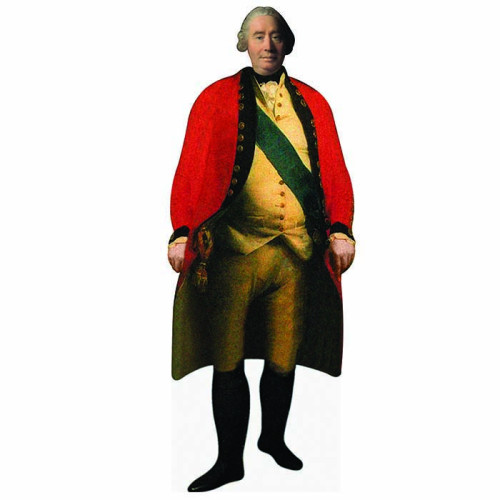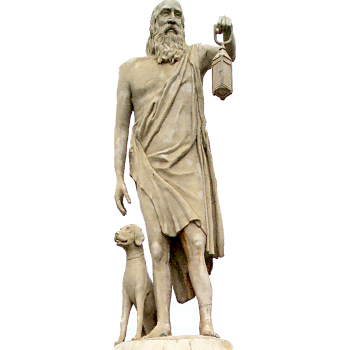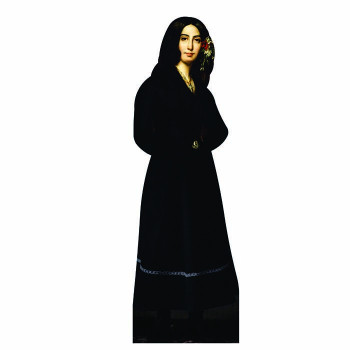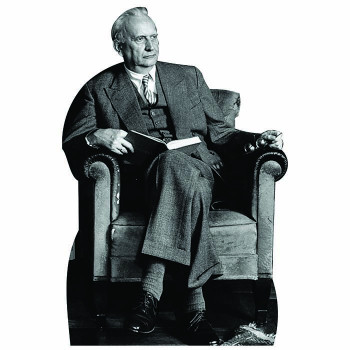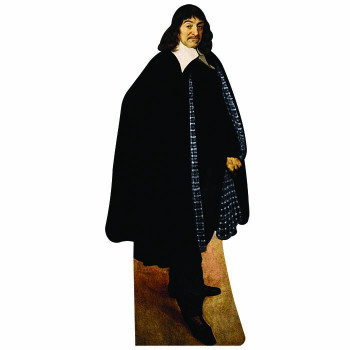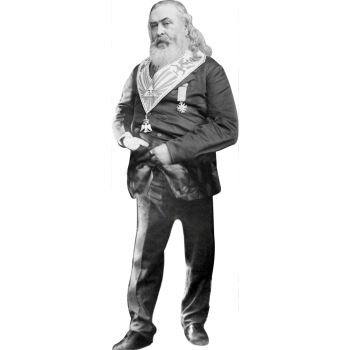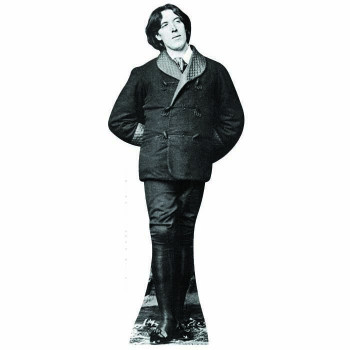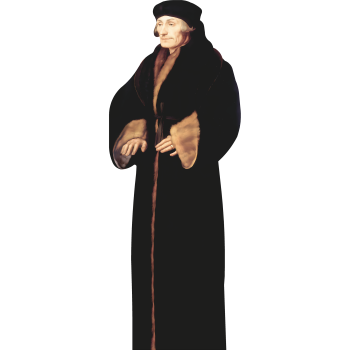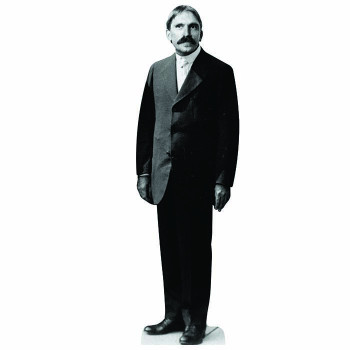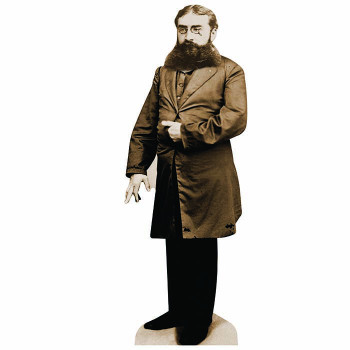DAVID HUME CARDBOARD CUTOUT
-
$0.00
Available Options
Buy Instantly With
Introduction to David Hume
Celebrate the legacy of one of the most influential philosophers of the Enlightenment with our lifesize cardboard cutout of David Hume. Perfect for philosophical displays, educational events, or as an inspiring addition to your home or office, this cutout captures the thoughtful and analytical presence of David Hume, reflecting his profound impact on philosophy and modern thought.
Background of David Hume
David Hume was born on May 7, 1711, in Edinburgh, Scotland. Raised in a modestly prosperous family, Hume demonstrated early intellectual promise. He entered the University of Edinburgh at the age of 12, where he studied a broad range of subjects, including philosophy, literature, and the sciences. Though he initially considered a career in law, his passion for philosophy soon took precedence.
Hume's first major work, "A Treatise of Human Nature," was published in three volumes between 1739 and 1740. Although the "Treatise" was not initially well-received, it laid the foundation for Hume's philosophical legacy. In this work, Hume explored human psychology and epistemology, arguing that human knowledge arises from sensory experiences and that reason is subordinate to the passions.
Hume further refined and popularized his ideas in later works, including "An Enquiry Concerning Human Understanding" (1748) and "An Enquiry Concerning the Principles of Morals" (1751). In these writings, Hume examined the limits of human understanding, the nature of causality, and the basis of moral judgments. His skeptical approach to knowledge and emphasis on empirical evidence challenged established philosophical doctrines and religious beliefs.
In addition to his philosophical works, Hume was a historian and essayist. His six-volume "The History of England" (1754-1762) became a bestseller and remained the standard history of England for many years. His essays covered a wide range of topics, from politics and economics to aesthetics and literary criticism, showcasing his versatility and breadth of knowledge.
Hume's philosophical ideas sparked considerable controversy, particularly his critiques of religious doctrines and his arguments against the possibility of miracles. Despite facing opposition, he remained a respected intellectual figure and was a central member of the Scottish Enlightenment, alongside contemporaries such as Adam Smith.
David Hume passed away on August 25, 1776, in Edinburgh. His works have had a lasting impact on philosophy, influencing subsequent thinkers and shaping the development of modern empirical and skeptical thought.
Cultural Impact of David Hume
David Hume's impact on philosophy and modern thought is profound and enduring. As one of the key figures of the Enlightenment, Hume's writings challenged traditional views on knowledge, religion, and ethics, paving the way for the development of empirical and skeptical approaches to philosophy.
Hume's epistemology, particularly his theory that all human knowledge is derived from sensory experiences, revolutionized the study of human cognition. His arguments about the limitations of human understanding and the role of habit in shaping beliefs about causality have influenced numerous fields, including psychology, cognitive science, and the philosophy of science.
Hume's moral philosophy, which emphasized the role of sentiment and emotion in moral judgments, challenged rationalist approaches to ethics and laid the groundwork for later developments in moral psychology and ethical theory. His assertion that "reason is, and ought only to be the slave of the passions" highlighted the importance of understanding human emotions in the context of ethical decision-making.
In addition to his contributions to philosophy, Hume's historical and literary works have had a significant cultural impact. "The History of England" provided a comprehensive and accessible account of English history, shaping historical scholarship for generations. His essays on a wide range of topics demonstrated the applicability of philosophical inquiry to everyday life and practical concerns.
Hume's legacy extends to contemporary discussions in philosophy, where his ideas continue to be studied, debated, and expanded upon. His skeptical approach and commitment to empirical investigation remain foundational principles in modern philosophy, influencing thinkers from Immanuel Kant to contemporary philosophers.
This cutout of David Hume celebrates his remarkable contributions and enduring legacy as a master philosopher and thinker. It serves as a tribute to his intellectual brilliance, his impact on the development of modern philosophy, and his significant role in the Enlightenment.
| Size | |
| Width | 26 Inches |
| Height | 67 Inches |
- Brand: Historical Cutouts
- Product Code:H79076
- Availability:In Stock
LEARN MORE ABOUT OUR AVAILABLE MATERIALS

LIFE SIZE HISTORICAL CUTOUTS
We have been the leading historical based cutout supplier for nearly 10 years. We have worked with many schools, museums, and colleges across the country to provide stunning graphics from hsitory. Historical Cutouts are available in 3 materials and come contour cut with an easel to be self standing. Click below to learn more about each material and our cutout process.
Learn More
LIFE SIZE HISTORICAL WALL DECALS
All of our historical figures are available as a life size wall decals. Vinyl wall decal orders come ready to apply with squeegie and instructions. Having trouble? Check out our how to youtube video. Our graphics are printed on tear resistant PhotoTex Vinyl using our high definition 4 color plus white printing process.
Learn More
HISTORICAL ACRYLIC CUTOUTS
Desktop Legends are a smaller version of our life size cutotus printed on 3/16th" acrylic. All of our historical cutouts are also available as a desktop legend. These acrylic statuettes come in two sizes, 8" and 12". If you would like to learn more please click below.
Learn MoreRELATED PRODUCTS
-
Diogenes the Cynic Cardboard Cutout
Introduction to DiogenesCelebrate the legacy of one of the most unconventional and influential philo..
Colorful Stack of Books Cardboard Cutout
90x46 inch cardboard cutout of a big tower of books. Are you well read? Do you want to appear well r..
George Sand Lucile Aurore Dupin Cutout Cardboard Cutout
Introduction to George Sand Lucile Aurore DupinCelebrate the legacy of one of the most influential a..
Leonardo Da Vinci llustration Cardboard Cutout
Introduction to Leonardo DaVinciStep into the Renaissance era with our exquisite life-size cardboard..
Karl Jaspers Cardboard Cutout
Introduction to Karl JaspersCelebrate the legacy of one of the most influential existentialist philo..
Rene Descartes Cardboard Cutout
Introduction to Rene DescartesCelebrate the legacy of one of the most influential philosophers and m..
Albert Pike Cardboard Cutout
Introduction to Albert PikeCelebrate the legacy of one of the most influential figures in Freemasonr..
Oscar Wilde Cardboard Cutout
Introduction to Oscar WildeCelebrate the legacy of one of the most flamboyant and brilliant figures ..
Desiderius Erasmus Of Rotterdam Cardboard Cutout
Introduction to Desiderius Erasmus Of RotterdamWelcome to Life Size Custom Cutouts, where history an..
Igor Stravinsky Cardboard Cutout
Introduction to Igor StravinskyCelebrate the legacy of one of the most influential composers of the ..
John Dewey Cardboard Cutout
Introduction to John DeweyCelebrate the legacy of one of the most influential philosophers and educa..
Vladimir Nemirovich-Danchenko Cardboard Cutout
Introduction to Vladimir Nemirovich-DanchenkoCelebrate the legacy of one of the most influential fig..

